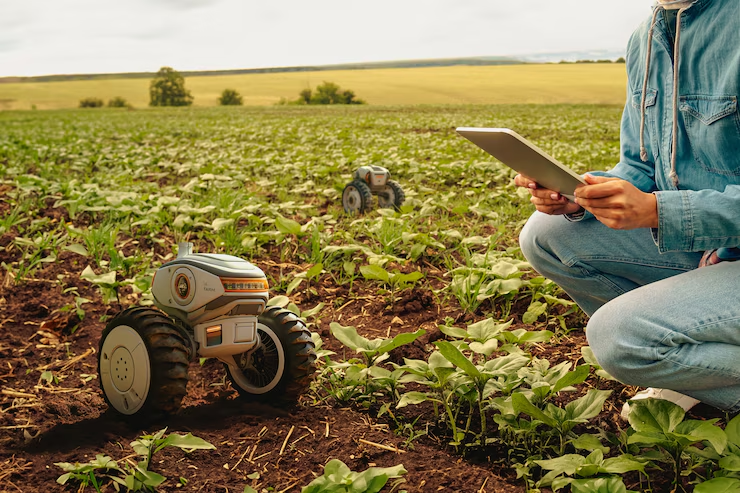Artificial Intelligence (AI) is transforming various industries worldwide, and agriculture in South Africa is no exception. As farmers face challenges such as climate change, water scarcity, and fluctuating market demands, AI-driven solutions are providing innovative ways to improve efficiency, increase yields, and ensure sustainable farming practices.
AI-Powered Precision Farming
One of the most significant ways AI is changing farming in South Africa is through precision agriculture. AI-powered drones, sensors, and satellite imagery help farmers monitor crop health, soil conditions, and moisture levels in real time. These technologies allow farmers to apply water, fertilizers, and pesticides only where needed, reducing waste and costs while improving productivity.
Smart Irrigation Systems
Water scarcity is a pressing issue in South Africa, making efficient irrigation crucial for sustainable agriculture. AI-driven irrigation systems use weather data, soil moisture sensors, and machine learning algorithms to optimize water usage. These smart systems ensure that crops receive the right amount of water at the right time, minimizing water waste and maximizing crop growth.
AI in Pest and Disease Control
Pests and plant diseases can devastate crops and lead to significant financial losses. AI-powered applications analyze images of plants to detect early signs of disease or pest infestations. Farmers can receive instant alerts and recommendations on how to manage outbreaks, reducing the need for excessive pesticide use and preventing widespread damage.
Automated Farming Equipment
AI is also playing a role in mechanizing farming operations through autonomous tractors, robotic harvesters, and AI-driven sorting machines. These technologies help farmers reduce labor costs, increase efficiency, and speed up harvesting processes. With labor shortages being a common issue in agriculture, automation is proving to be a game-changer.
Market Prediction and Supply Chain Optimization
AI-driven analytics help South African farmers make informed decisions about when to plant, harvest, and sell their produce. By analyzing historical weather patterns, market trends, and demand forecasts, AI enables farmers to maximize profits while reducing post-harvest losses. Additionally, AI-powered supply chain management systems ensure smooth logistics, helping farmers connect directly with markets and consumers.
Challenges and Future Prospects
Despite the benefits, the adoption of AI in South African farming faces challenges such as high costs, lack of digital literacy among farmers, and limited internet access in rural areas. However, with government support, private-sector investments, and AI-driven agritech startups emerging, the future of AI in South African agriculture looks promising.
By integrating AI into farming practices, South Africa is paving the way for a more efficient, sustainable, and resilient agricultural sector. As technology continues to advance, AI will play an even greater role in addressing food security challenges and boosting the country’s agricultural economy.
Join 'Farmers Mag' WhatsApp Channel
Get the latest Farming news and tips delivered straight to your WhatsApp
CLICK HERE TO JOIN






